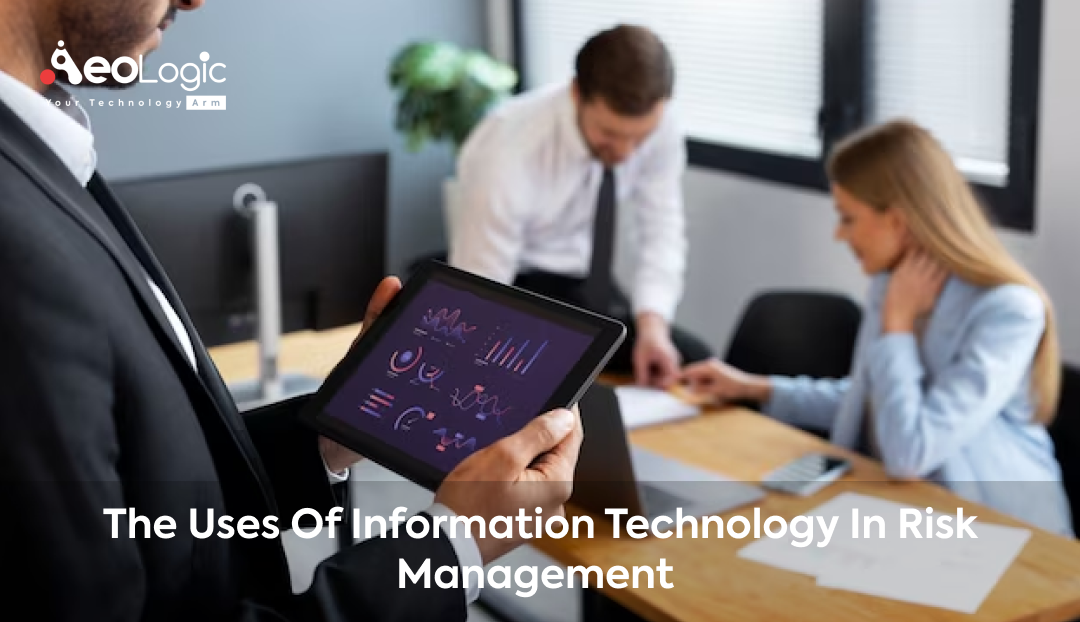In today’s fast paced and connected world, associations face a myriad of pitfalls that can impact their managements, character, and long term success. Technology, with its transformative power, has come as a crucial enabler in managing risks effectively and proactively. In this blog, let’s explore the role of technology in risk management, understand its impact, and discuss how associations can work technology to enhance their risk management practices. Get ready to harness the power of information technology in risk management to alleviate pitfalls and drive business adaptability!
Also read: Digital Transformation Examples for Business Success
Information Technology in Risk Management As a Game Changer
Information technology in risk management has revolutionized by enabling associations to:
Data Driven Threat Assessments
Advanced analytics, machine learning, and artificial intelligence empower associations to dissect vast quantities of data, identify patterns, and gain deep perceptivity into implicit pitfalls. This data driven approach enhances threat assessments, enabling associations to make further informed opinions.
Real Time Threat Monitoring
With real time data collection, associations can cover risk continuously, identify arising pitfalls, and take visionary measures. Advanced monitoring tools and automated cautions enable prompt threat identification and response, minimizing implicit damage.
Enhanced Compliance and Regulatory Adherence
Technology solutions, similar as compliance management systems and regulatory reporting platforms, streamline the process of staying compliant with evolving regulations. These tools automate compliance tasks, reducing the threat of non-compliance penalties.
Cybersecurity and Data Protection
As cyber pitfalls continue to evolve, technology plays a pivotal part in securing sensitive information. Robust cybersecurity measures, including encryption, intrusion discovery systems, and hand training, cover against data breaches and cyber-attacks.
Collaboration and Communication
Collaboration platforms, design management tools, and virtual workspaces enhance communication and allow effective collaboration among risk management teams. These technologies promote translucency, enable timely information sharing, and enhance decision making processes.
Automation and Process Efficiency
Information technology in risk management enables automation of routine risk management tasks, reducing manual error and perfecting process effectiveness. Robotic Process Automation (RPA) and workflow management systems streamline risk management workflows, assuring harmonious and standardized practices.
Using Technology for Effective Risk Management
To harness the full eventuality of technology in risk management, associations can consider the following strategies:
Integrated Risk Management Platforms
Implement integrated risk management platforms that centralize threat data, enable comprehensive threat assessments, and give real time threat monitoring capabilities. These platforms allow a holistic view of pitfalls and help associations proactively manage them.
Advanced Analytics and AI
Using advanced analytics ways, similar as predictive analytics and machine learning, to uncover retired patterns, prognosticate future pitfalls, and support decision making. AI- powered risk management systems can automate threat assessments and give intelligent perceptivity.
Cybersecurity Solutions
Invest in robust cybersecurity results to cover against cyber pitfalls and insure data privacy. Apply technologies like intrusion discovery systems, endpoint protection, and vulnerability scanning tools to guard critical means.
Risk Visualization and Reporting Tools
Influence data visualization tools to present threat information in a clear and intuitive manner. Also, dashboards and reporting tools enable stakeholders to understand pitfalls. Therefore, cover crucial risk pointers, and make data driven opinions.
Constant Monitoring and Alerts
Moreover, apply automated covering systems that continuously assess pitfalls, detector cautions for anomalies, and allow real time response. Thus, this enables associations to take immediate action and minimize implicit impacts.
Unleashing the Power of Technology in Risk Management
On the other hand, by embracing technology in risk management practices, associations can unleash remarkable benefits:
Improved Risk Perceptivity
Advanced analytics and data driven approaches give deeper perceptivity into pitfalls. Hence, enabling associations to make visionary and informed opinions.
Timely Threat Response
On the other hand, real- time monitoring, alerts, and automated workflows allow fast threat response. Therefore, minimizing implicit damage and assuring business durability. (www.srmfre.com)
Enhanced Effectiveness
Furthermore, robotization of risk management tasks reduces manual efforts, streamlines processes. And improves overall functional effectiveness.
Strategic Decision Making
Also, technology enabled risk management empowers associations to make strategic opinions grounded on accurate and over- to- date threat information.
Adaptability and Business Durability
By using technology, associations enhance their adaptability, acclimatize to arising pitfalls, and sustain business durability indeed in grueling times.
Also read: The Use of Technology in Management
Embracing the Future of Risk Management
Subsequently, technology has come an necessary tool in managing pitfalls effectively. Thus, enabling associations to navigate uncertainties, cover means, and drive business adaptability. By embracing technological advancements, associations can enhance risk management practices. Thus, proactively identify and address pitfalls, and place themselves for long term success in an ever- changing business geography. Therefore, share your experiences or thoughts with technology in risk management with us. Get in touch with us to know more about effective risk management!






